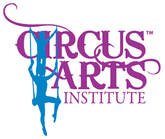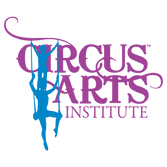CIRCUS ARTS THERAPY® TRAINING
LEVEL 2
In our Level 2 Training, both professional and paraprofessional trainees will continue to learn how to use the Adaptive Circus Arts as a therapy tool to help children, teens, adults, families, and groups. This training takes a deeper dive into the process of doing individual and group work with neurodiverse and physically diverse populations.
The Level 2 Training is for those who have taken our Level 1 course.
The Level 2 Training is for those who have taken our Level 1 course.
COURSE CURRICULUM
Circus Arts Therapy®: Building on the Foundations - Application of Therapeutic Work
Circus Arts Therapy®: The Application of Ground Work
Independent Study Options
When participants go home after training, they will be asked to incorporate all they have learned into their work.
Independent study is not required for Circus Arts Therapy® Training participants, however participants are encouraged to do independent study with any of the following organizations:
- In-depth clinical details about how to apply Circus Arts Therapy® techniques in both recreational and clinical settings with neurodiverse populations
- How to design and lead sessions, groups, summer camps and classes focusing on social skills such as trust, communication, leadership, problem solving, empathy, conflict resolution, self-expression, and teamwork
- Methodology, including how to design a sensory friendly room for clients and their families; an in-depth study on such topics as Sensory Based play strategies, the ADHD client, Sensory Integration and Regulation, Tool for Empowerment and more.
- In depth discussion and review of Therapeutic Language for Circus Educators; including but not limited to when and under what circumstances it is best to use this language when working with your students
- The role of Executive Functions
- Key differences between ADHD and Anxiety
- Key differences between ADHD and Sensory Processing Issues
- Case studies, including practical review of videos
Circus Arts Therapy®: The Application of Ground Work
- The specific differences between working with neurotypical versus neurodiverse or physically diverse populations on the ground
- How to create and modify skill progressions when working with neurotypical versus neurodiverse or physically diverse populations
- Specific skills that can be used when working with neurotypical versus neurodiverse or physically diverse populations
- Application of level 2 ground skills
- Putting it all together: Practice time for combining Level 1 and Level 2 teaching skills, spotting skills and the use of therapeutic language while teaching
Independent Study Options
When participants go home after training, they will be asked to incorporate all they have learned into their work.
Independent study is not required for Circus Arts Therapy® Training participants, however participants are encouraged to do independent study with any of the following organizations:
- Human Connection Project with Kevin and Erin Maile O'Keefe
- NECCA with Elsie and Serenity Smith
- Circus Center in San Francisco
- Wise Fool in New Mexico
- Any other reputable circus teachers and trainers
- Check with the American Youth Circus Organization for circus schools in your area.


